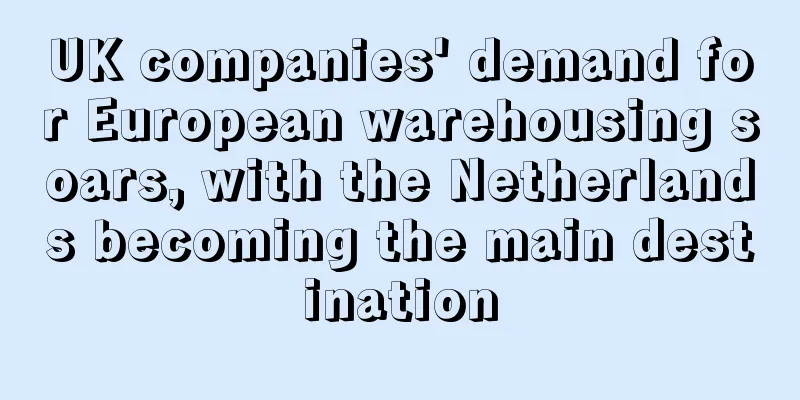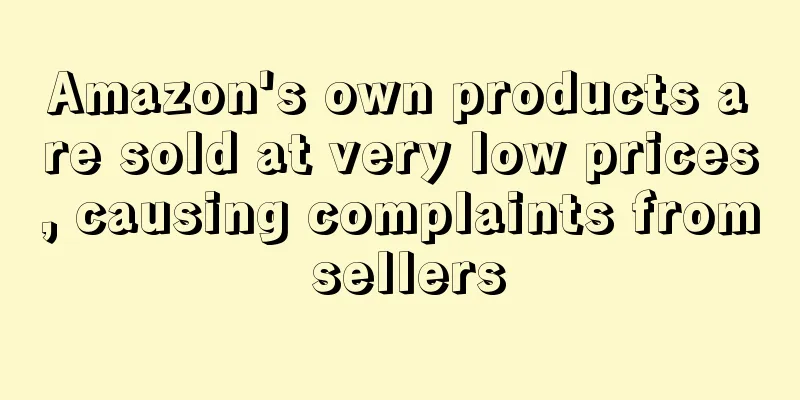UK companies' demand for European warehousing soars, with the Netherlands becoming the main destination

|
According to foreign media reports, more and more British companies are seeking to open warehouses on the European continent or use customs warehouses and temporary storage facilities (including special customs procedures) to reduce the additional customs procedures and tax costs incurred when trading with the EU .
More than a fifth of companies said they were interested in exploring customs warehousing in the future, according to a poll conducted by the IOE&IT at a January 5 seminar on rules of origin .
European warehousing demand soars, with the Netherlands becoming a major destination
Since the beginning of the year, many businesses have been frustrated by rising customer service costs and cumbersome customs procedures in Europe. Warehousing and logistics companies such as KWL are promoting the commercial benefits of warehousing in Europe.
It is understood that the warehousing rules in the EU are: goods outside the EU can be stored in customs warehouses within the EU without restrictions, unless they are harmful to health or the environment. In EU warehouses, goods will be subject to customs supervision and no import duties or other fees related to imported goods or import licenses need to be paid.
This is a huge benefit and convenience for many British companies, and a large number of British companies have begun to seek to build warehouses in Europe. According to the British "Guardian" report, Dutch logistics and warehousing companies are being overwhelmed by the frenetic demand of British companies , who hope to use warehousing to obtain tax benefits.
Jochem Sanders, business development manager at the Netherlands International Distribution Board , said he was contacted by more than one UK company every day throughout December and January , and the situation was getting worse .
Many British companies have already taken action
Sporting goods company Leon Paul is understood to be considering opening a warehouse in Europe, where a third of its £7m turnover comes from.
Alex Paul, head of the company , said that since the end of the transition period on December 31, new export taxes , courier fees and value-added tax have made the costs beyond the company's ability to bear. Leon Paul will save some of the costs of doing business in Europe by setting up warehouses in Europe .
Scottish hosiery company Snag Tights , which has a turnover of £24m and fulfils 21,000 orders a week , has also decided to open a warehouse in the Netherlands to handle all non-UK orders .
Chief executive Brie Read said: “ With a third of sales currently coming from within the EU, it no longer makes sense to import our products from Italy to the UK and then export them back to the EU . We therefore had to build a new warehouse. ”
Large companies such as Hornby and JD Sport have also relocated to Europe and are restructuring their warehouse facilities in Europe. Europe Warehousing Netherlands |
<<: $3 billion market! Middle Eastern e-commerce Noon enters food delivery industry
>>: Greeting card retailer Card Factory launches shopping app to boost online sales
Recommend
Stepping on the accelerator, a group of sellers put up the "return package"
Late at night in a cross-border e-commerce indust...
What is Shopswain? Shopswain Review, Features
Shopswain is a tool that helps Amazon sellers gro...
What is EHang International Cargo? EHang International Cargo Review, Features
Founded in 2007, EHang International Freight is an...
The scale will reach 77 billion US dollars! Can the second-hand fashion market also become a blue ocean?
Foreign media reported that according to the 2021...
The approval rate is as high as 98.8%! South Korea's "Online Platform Fairness Act" has sparked heated discussions
According to Korean media reports, most small bus...
The funds involved exceeded 21 million, and Zebao was sued again
A top-selling product is also a lot of lawsuits. ...
The "Double Eleven" shopping concept has penetrated Southeast Asia, and sellers have more opportunities to make big orders
Since Alibaba held the first "Double Eleven&...
US shipping prices have increased across the board! US East Coast has reported 18.5
Last week, air freight and express delivery price...
What is Kelley Blue Book (KBB)? Kelley Blue Book (KBB) Review, Features
Kelley Blue Book (KBB) is an automotive appraisal ...
The scenery is unique! This hot seller is on the market
Recently, many Shenzhen sellers have been blocked...
What is CH Robinson? CH Robinson Review, Features
CH Robinson is one of the world's leading logi...
eBay plans to launch new features to combat malicious buyers and protect the rights of merchants
At this month’s Seller Check-in event, Ian Bednow...
What is extra-studio? extra-studio Review, Features
extra-studio is a handmade leather goods brand. Al...
What is The Row? The Row Review, Features
The Row was founded by Ashley Olsen and Mary-Kate...
Ozon's revenue is expected to reach $2.32 billion this year
On August 25, according to foreign media reports,...









